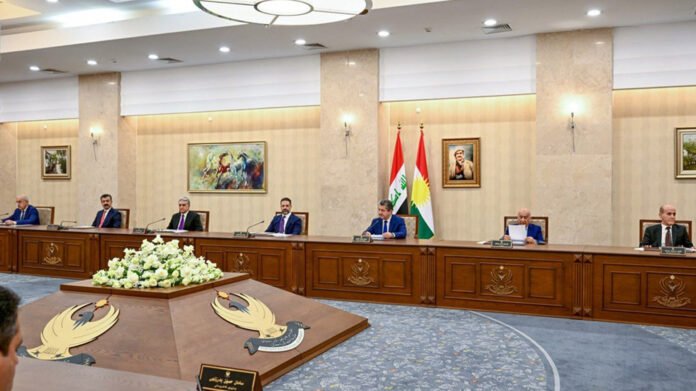The Kurdistan Regional Government (KRG) once again called on Iraq’s federal authorities to restart Kurdish oil exportsand end the suspension of salary payments. Officials in Erbil stressed their full commitment to cooperation and urged Baghdad to take action.
During a recent cabinet meeting, the KRG reaffirmed its readiness to resume Kurdish oil exports immediately. Officials said they have already fulfilled all obligations under previous agreements. They emphasized that no further delays should block the flow of public funds to Kurdistan.
“We have met and even surpassed every demand,” stated the Council of Ministers. “Baghdad has no valid reason to hold back salary payments.”
Oil exports from Kurdistan have remained halted for months. This freeze followed a court ruling that found Turkey in violation of a decades-old pipeline deal. The decision led to a full shutdown of the Iraq-Turkey pipeline, stopping all Kurdish oil exports.
Despite that, Erbil and oil companies signaled strong support for resuming flows under Baghdad’s supervision. They also welcomed plans to audit production and transport costs through an independent international consultancy.
The KRG agreed to hand over revenues from future exports to Iraq’s federal finance ministry. It also expressed willingness to channel oil exports through Iraq’s State Oil Marketing Organization (SOMO).
However, tensions remain high. Baghdad’s finance ministry recently froze all transfers to the KRG. The ministry cited overspending beyond the Region’s 12.67 percent share in the 2025 federal budget.
In response, Kurdish political factions strongly condemned the decision. They labeled it unconstitutional and politically motivated. The KRG insisted that public employee salaries are a protected right under the Iraqi constitution.
“Salaries are legal and must not be withheld under any justification,” said the KRG. “Baghdad must change its policy and honor its obligations.”
Meanwhile, international partners also weighed in. A US State Department official urged both sides to restart oil shipments, calling delays “unacceptable.” Washington emphasized the urgent need for a long-term resolution.
With pressure mounting both inside and outside Iraq, observers expect fresh negotiations. Yet, the standoff continues to affect over 1.2 million public workers in Kurdistan.

